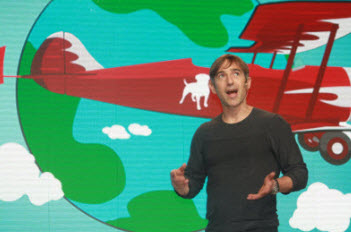 Zynga is expected to go public any day now. The social game maker could raise more than $1 billion at a valuation of $8.9 billion as it seeks to spread its social games to all platforms where gamers congregate.
Zynga is expected to go public any day now. The social game maker could raise more than $1 billion at a valuation of $8.9 billion as it seeks to spread its social games to all platforms where gamers congregate.
Founded by Mark Pincus (pictured right) in 2007, Zynga has has packed an interesting and colorful history into its four and a half years. Here’s our chronology of the life of Zynga.
Dec. 12, 2011 — CastleVille hits 30 million users and Zynga has five of the top five games on Facebook.
Dec. 8, 2011 — Zynga bets on Google TV with new Texas HoldEm Poker app.
AI Weekly
The must-read newsletter for AI and Big Data industry written by Khari Johnson, Kyle Wiggers, and Seth Colaner.
Included with VentureBeat Insider and VentureBeat VIP memberships.
Dec. 6, 2011 — Vostu settles copyright infringement case with Zynga.
Dec. 2, 2011 — Zynga prices IPO in range at $8.50 to $10 a share at $8.9 billion valuation. That was lower than the expected $15 billion to $20 billion.
Nov. 21, 2011 — Zynga’s CastleVille hits 5 million daily active users; Zynga has 206.8 million monthly active users and more than 2,500 employees.
Nov. 17, 2011 — Owen Van Natta steps down as Zynga’s chief business officer, but stays on board at the company. Zynga discloses it acquired 15 companies in 2011.
Nov. 14, 2011 — Zynga launches CastleVille; Best Buy launches FarmVille plush toys.
Nov. 10, 2011 — Wall Street Journal reports Zynga leans on some workers to surrender pre-IPO shares.
Nov. 7, 2011 — Bloomberg reports Zynga eyes post-Thanksgiving IPO.
Nov. 4, 2011 — Zynga reports profit growth slowing; Net income is $12.5 million in third quarter ended Sept. 30, down 54 percent from a year ago. Revenue was $307 million, up 80 percent.
Nov. 3, 2011 — Zynga describes its upcoming CastleVille game.
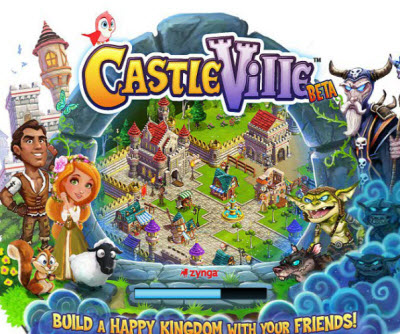 Oct. 14, 2011 — An accounting change, which allows Zynga to show better profits, alarms some analysts.
Oct. 14, 2011 — An accounting change, which allows Zynga to show better profits, alarms some analysts.
Oct. 13, 2011 — Zynga says it will trade on Nasdaq as ZNGA once it goes public.
Oct. 12, 2011 — Raptr reveals The Sims Social has stolen millions of players from Zynga.
Oct. 11, 2011 — Zynga says it will launch 10 new games in services at a press conference at its new San Francisco headquarters. The company announces Hidden Chronicles, CastleVille, Mafia Wars Shakedown, Project Z, and Mafia Wars 2 on Google+. Zynga also unveils Zynga Direct, a new way of distributing games.
Sept. 30 2011 — Year-to-date revenue hits $828.8 million and year-to-date net income is $30.7 million.
Sept. 29, 2011 — Zynga announces Enrique Iglesias promotion in CityVille.
Sept. 26, 2011 — Zynga launches CityVille, its most popular game, on Google+.
Sept. 20, 2011 — Zynga launches Hanging With Friends on Android. Zynga announces Mafia Wars 2.
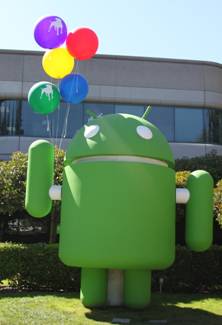 Sept. 16, 2011 — Zynga announces it will add Indiana Jones to Adventure World.
Sept. 16, 2011 — Zynga announces it will add Indiana Jones to Adventure World.
Sept. 8, 2011 — Adventure World launches.
Aug. 26, 2011 — Zynga gives 70 times more voting power to CEO Mark Pincus.
Aug. 24, 2011 — Zynga adds game card distributors in Europe and Turkey.
Aug. 21, 2011 — Zynga hires EA’s Jeff Karp as sales and marketing chief.
Aug. 16, 2011 — Zynga buys Astro Ape game studio.
Aug. 12, 2011 — Zynga launches Pioneer Trail add-on for FrontierVille.
Aug. 11, 2011 — At Google’s social network games debut, Zynga launches poker game on Google+.
Aug. 1, 2011 — Zynga launches Words With Friends on Facebook.
July 25, 2011 — Zynga to take version of CityVille to Tencent’s network in China.
July 12, 2011 — Filing reveals minority investors Google, Peter Thiel, Softbank, and others. EA buys PopCap games for $750 million. PopCap reportedly turned down a higher offer of $950 million from Zynga.
July 8, 2011 — Zynga buys Five Mobile in Toronto, its 15th acquisition in 13 months.
July 4, 2011 —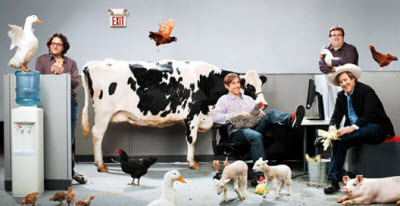 Filing shows Zynga plans to diversify beyond Amazon with its own data centers.
Filing shows Zynga plans to diversify beyond Amazon with its own data centers.
July 1, 2011 — Zynga files to raise $1 billion in an IPO. Filing shows Zynga raised $845 million in three rounds over four years.
June 28, 2011 — Wall Street Journal reports Zynga preparing to file for IPO.
June 26, 2011 — Empires & Allies tops FarmVille in 25 days.
June 16, 2011 — Zynga sues Brazilian firm Vostu over copyright infringement for alleged copycat games.
June 15, 2011 — CityVille Hometown launched on mobile.
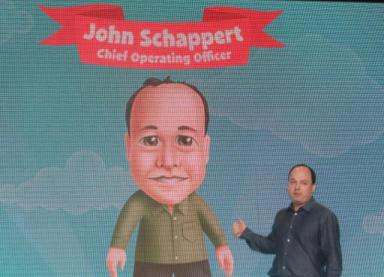 June 3, 2011 — EA’s No. 2 executive John Schappert joins Zynga as chief operating officer.
June 3, 2011 — EA’s No. 2 executive John Schappert joins Zynga as chief operating officer.
March 28, 2011 — Zynga raises $3 million for Japan quake victims.
February 2011 — Zynga raises round at $10 billion valuation.
Feb. 2, 2011 — Zynga takes Words With Friends game to Android mobile phones.
Jan. 24, 2011 — Zynga threatens lawsuit against Blingville for using “ville” in name.
June 1, 2011 — Zynga launches Empires & Allies.
Jan. 14, 2011 — CityVille hits 100 million users after 43 days. It is the fastest-growing game of all time in numbers of users.
Dec. 31, 2010 — Zynga’s revenues hit $597.4 million and net income is $90.5 million. Zynga has 1,483 employees.
Dec. 24, 2010 — CityVille becomes bigger than FarmVille, with more than 58 million users.
Dec. 2, 2010 — Zynga says it has acquired Texas-based mobile game publisher Newtoy. Price is later revealed to be $53.3 million. Zynga launches CityVille.
Nov. 30, 2010 — Zynga shuts Street Racing game.
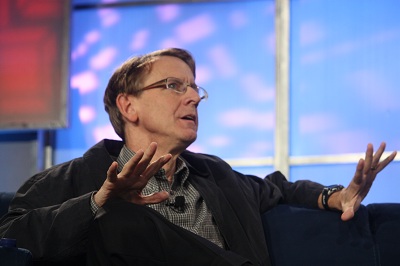 Nov. 29, 2010 — Zynga cuts a deal with American Express to redeem virtual goods with credit card points.
Nov. 29, 2010 — Zynga cuts a deal with American Express to redeem virtual goods with credit card points.
Nov. 16, 2010 — Billionaire investor John Doerr of Kleiner Perkins says Zynga is “our best company ever.”
Oct. 26, 2010 — Zynga shares trading on secondary markets value the company at $5 billion, more than the value of Electronic Arts.
Oct. 5, 2010 — Zynga buys Bonfire Studios and renames it Zynga Dallas
Sept. 27, 2010 — Zynga signs one of the biggest leases in recent San Francisco history, taking over old Sega building with space to house thousands of employees.
Sept. 8, 2010 — SF Weekly runs story on FarmVillains, about how Zynga copied the games of rivals to get to the top.
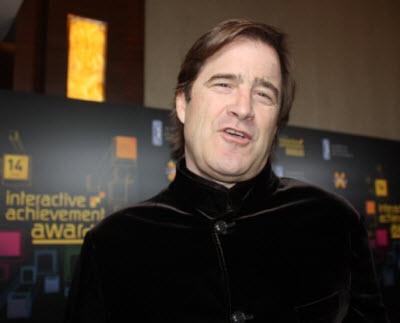 September, 2010 — Zynga has 1,200 employees.
September, 2010 — Zynga has 1,200 employees.
Aug. 25, 2010 — Digital Chocolate sues Zynga over Mafia Wars trademark.
Aug. 11, 2010 — FarmVille pulled from MSN.com.
August 4, 2010 — In its first foray into Japan, Zynga buys Unoh in Tokyo.
July 27, 2010 — Disney buys Zynga’s rival Playdom for up to $763.2 million. That suggests that Zynga is worth even more than that.
July 28, 2010 — Softbank confirms $150 million investment in Zynga as the company expands its social games in Japan.
June 9, 2010 — Zynga launches FrontierVille, the first game from Zynga East and chief game designer Brian Reynolds.
June 3, 2010 — Zynga buys Challenge Games.
May 24, 2010 — Mike Arrington and Bing Gordon describe the clash over Facebook Credits as the Cuban Missile Crisis of tech.
May 18, 2010 — Zynga and Facebook announce five-year deal in which Zynga agrees to support Facebook Credits on an exclusive basis. Zynga will pay 30 percent of its game transactions to Facebook.
May 7, 2010 — Zynga threatens to leave Facebook after the social network requires exclusive use of Facebook Credits for monetizing apps. Zynga plans to distance itself from Facebook with Zynga Live network.
March 18, 2010 — Zynga announces it will open second overseas office in Ireland.
March 16, 2010 — Steven Chiang, former EA Sports chief at Electronic Arts, joins Zynga as president of game studios.
Feb. 17, 2010 — Opens Zynga India office in Bangalore, first office outside the U.S.
Jan. 12, 2010 — Zynga relaunches Offers with eight well-known brands.
Dec. 31, 2009 — Revenues hit $121.5 million and net loss is $52.8 million. About 83 percent of Zynga’s revenue came from its top three games. Zynga closes the year with 576 employees.
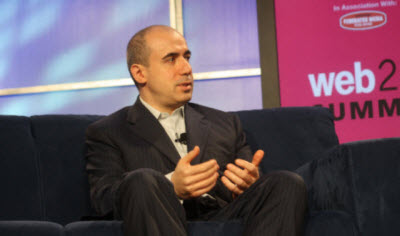 Dec. 15, 2009 — DST, led by Russian investor Yuri Milner (pictured) invests $180 million in Zynga.
Dec. 15, 2009 — DST, led by Russian investor Yuri Milner (pictured) invests $180 million in Zynga.
Dec. 10, 2009 — Zynga sued over deceptive offers.
Nov. 17, 2009 — With more than 196 million monthly active users, Zynga raises another $15.18 million from Kleiner Perkins in an extension to its second funding round.
Nov. 16, 2009 — Zynga named one of the hottest new brands by Advertising Age.
Nov. 14, 2009 — Zynga’s FishVille allowed on Facebook again.
Nov. 9, 2009 — Electronic Arts says it will lay off 1,500 people and buy Zynga rival Playfish for as much as $400 million.
Nov. 8, 2009 — Facebook puts Zynga FishVille on hold for ad violations. Pincus announces that Zynga will remove all of its CPA offers. The move means that Zynga’s ad revenues will take a big hit.
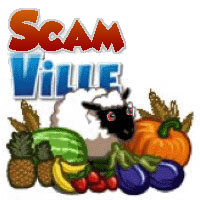 Nov. 6, 2009 — Techcrunch runs video of Zynga CEO Mark Pincus saying, “I did every horrible thing in the book just to get revenues.”
Nov. 6, 2009 — Techcrunch runs video of Zynga CEO Mark Pincus saying, “I did every horrible thing in the book just to get revenues.”
Nov. 2, 2009 — In “Scamville” article, Techcrunch says a third of Zynga’s revenue comes from lead generation and other offers. Zynga takes steps to remove deceptive offers. But Pincus defends the practice of offering CPA offers.
Oct. 31, 2009 — Techcrunch runs story on “Scamville,” or how social games are supported by shady offers that deceive consumers.
Oct. 20, 2009 — Zynga donates $487,500 to support Haitian children. At the Web 2.0 Summit, Pincus predicts an “app economy” in the future. Zynga has more than 50 million users.
Sept. 13, 2009 — Zynga settles Mob Wars litigation.
Sept. 10, 2009 — Zynga sues Playdom for stealing trade secrets.
July 31, 2009 — Surpassing Yahoo Games, Zynga becomes biggest online game operator in the U.S. with 44 million monthly unique users. Pincus says that Zynga will generate more than $100 million in revenues in 2009. Zynga has 330 employees and 110 open jobs.
June 30, 2009 — Zynga hires Brian Reynolds as chief game designer. He sets up Zynga East as a new game studio in Baltimore, Md.
June 22, 2009 — FarmVille launches. It will grow to become the biggest social game of its time.
June 13, 2009 — The company bans a number of players for hacking the system to get more poker chips.
June 12, 2009 — Mark Pincus says Zynga is not planning an IPO. The company has more than 250 employees. Top rivals include Playfish, Playdom and SGN.
June 5, 2009 — Zynga acquires social network and game maker MyMiniLife. The company’s game engine becomes the infrastructure for FarmVille.
March 24, 2009 — At the first annual GamesBeat conference, Mark Pincus declares that social gaming isn’t a fad.
 Feb. 14, 2009 — Mob Wars creator David Maestri and his company, Psycho Monkey, sue Zynga for its copycat game Mafia Wars.
Feb. 14, 2009 — Mob Wars creator David Maestri and his company, Psycho Monkey, sue Zynga for its copycat game Mafia Wars.
Dec. 31, 2008 — Zynga’s revenues hit $19.4 million, with a loss of $22.1 million. Zynga has 157 employees.
July 23, 2008 — Kleiner Perkins Caufield & Byers invests $29 million in Zynga. Bing Gordon joins Zynga’s board.
June 2008 — Zynga acquires YoVille and launches Mafia Wars.
Mid-2008 — Zynga has 50 employees and it focuses on “organic development” where the company builds it all itself, quickly. Slide and RockYou emerge as the top app makers on Facebook.
April 28, 2008 — Bing Gordon resigns from Electronic Arts to become a partner at Kleiner Perkins Caufield & Byers.
March 2008 — Zynga adds virtual goods transactions to the poker game.
Jan. 15, 2008 — Union Square Ventures, Foundry Group, Avalon Ventures, Reid Hoffman, Peter Thiel and other angels invest $5 million in Zynga. Additional funding is added a month later.
Dec. 31, 2007 — Zynga’s revenues for the year hit $693,000 with a net loss of $846,000.
July 2007 — Mark Pincus renames the new company Zynga. Early team includes Eric Schiermeyer, Michael Luxton, Justin Waldron, Kyle Stewart, Scott Dale, John Doerr, Steve Schoettler, Kevin Hagan and Andrew Trader. Its first game is Texas Hold ‘Em Poker, later called Zynga Poker.
April 19, 2007 — Mark Pincus starts a company called Presidio Media. It will later morph into Zynga.
VentureBeat's mission is to be a digital town square for technical decision-makers to gain knowledge about transformative enterprise technology and transact. Learn More
